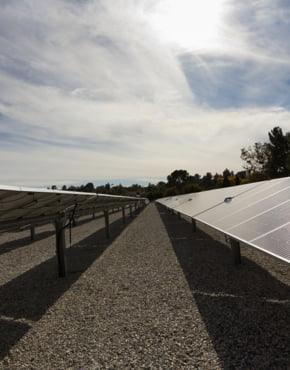Approval of Climate Adaptation Master Plan for Water implementation culminates two-year effort, sets framework for future investments
To ensure Southern California has a reliable supply of water amid hotter temperatures, more extreme droughts, less snowpack and rising sea levels, Metropolitan Water District’s Board of Directors adopted today a groundbreaking strategy to adapt to climate change.
The implementation strategy of the Climate Adaptation Master Plan for Water, developed over the past two years through an extensive process involving water leaders from across the region, provides a roadmap to guide future investments and decision-making on proposed water projects and programs.
“This is an unprecedented approach to building climate resilience,” board Chair Adán Ortega, Jr. said. “Metropolitan has a long history of successfully planning for Southern California’s water future, but we’ve never done anything like this before; no one in the country has.”
“We have a responsibility to plan for managing the resources and costs for meeting the unprecedented climate uncertainties we face,” Ortega continued. “Climate extremes are stressing all of our water sources – from the Colorado River, the northern Sierra, and here locally. We know we are going to have to make significant investments in existing and new local supplies, storage, conveyance and water efficiency. But, we face a lot of uncertainties on how and when to make those investments. This new decision-making framework will help us build the right projects at the right time while limiting rate impacts.”
Also known as CAMP4Water, the strategy includes an assessment of the region’s future water needs and sets targets for identifying new water supplies and implementing adaptation policies within certain time frames. For example, it sets a target of 2035 for identifying up to 300,000 acre-feet of potential additional water supplies (an acre-foot is about 326,000 gallons, enough water to serve roughly three Southern California families for a year).
The framework the board will use to make decisions about future investments in projects and programs involves a strategy that analyzes potential investments based on a set of defined criteria, including both qualitative and quantitative measures.
“Understanding the water supply benefits of these projects is paramount, but we also need to understand how their performance will change as the climate changes, their cost and financial sustainability, their flexibility under different environments, their ability to equitably benefit communities across the region, and whether they have any environmental co-benefits,” said Metropolitan’s Chief Sustainability, Resilience and Innovation Officer Liz Crosson.
Major proposed projects that will be assessed this year under the new decision-making framework include: Pure Water Southern California, which would be one of the largest water recycling projects in the world; Sites Reservoir, a 1.5 million acre-foot reservoir proposed for northwest of Sacramento; and the Delta Conveyance Project, which would modernize the state’s water delivery infrastructure in the Sacramento-San Joaquin Delta. Metropolitan’s existing programs to increase water efficiency in homes and businesses will also be assessed this year for their capacity to help the region adapt to climate change.
In the coming years, dozens of other projects and programs will also be assessed through the new climate adaptation framework.
“As we make decisions on a variety of matters, we need to understand them through the lens of our changing climate,” Metropolitan General Manager Deven Upadhyay said. “Climate change isn’t just threatening our supply of water, it’s also affecting our water quality, infrastructure, operations, workforce, public health and financial sustainability – it is affecting every aspect of how we deliver water to Southern California.”
Upadhyay added that progress on CAMP4Water will be reported annually to incorporate new data and research, account for additional projects or programs that have been developed, and adjust policies, tools and timelines as necessary. And some projects will be assessed through the framework on multiple occasions as additional decision-making is necessary.
“This is a living plan, it will be refined and improved as we get new and better information. We are starting with an innovative, deeply informed approach to adapting to climate change, and it will only improve,” Upadhyay said.
The Metropolitan Water District of Southern California is a state-established cooperative that, along with its 26 cities and retail suppliers, provides water for 19 million people in six counties. The district imports water from the Colorado River and Northern California to supplement local supplies, and helps its members to develop increased water conservation, recycling, storage and other resource-management programs.
Media Contacts
